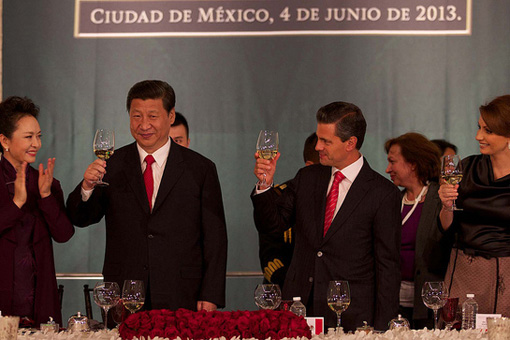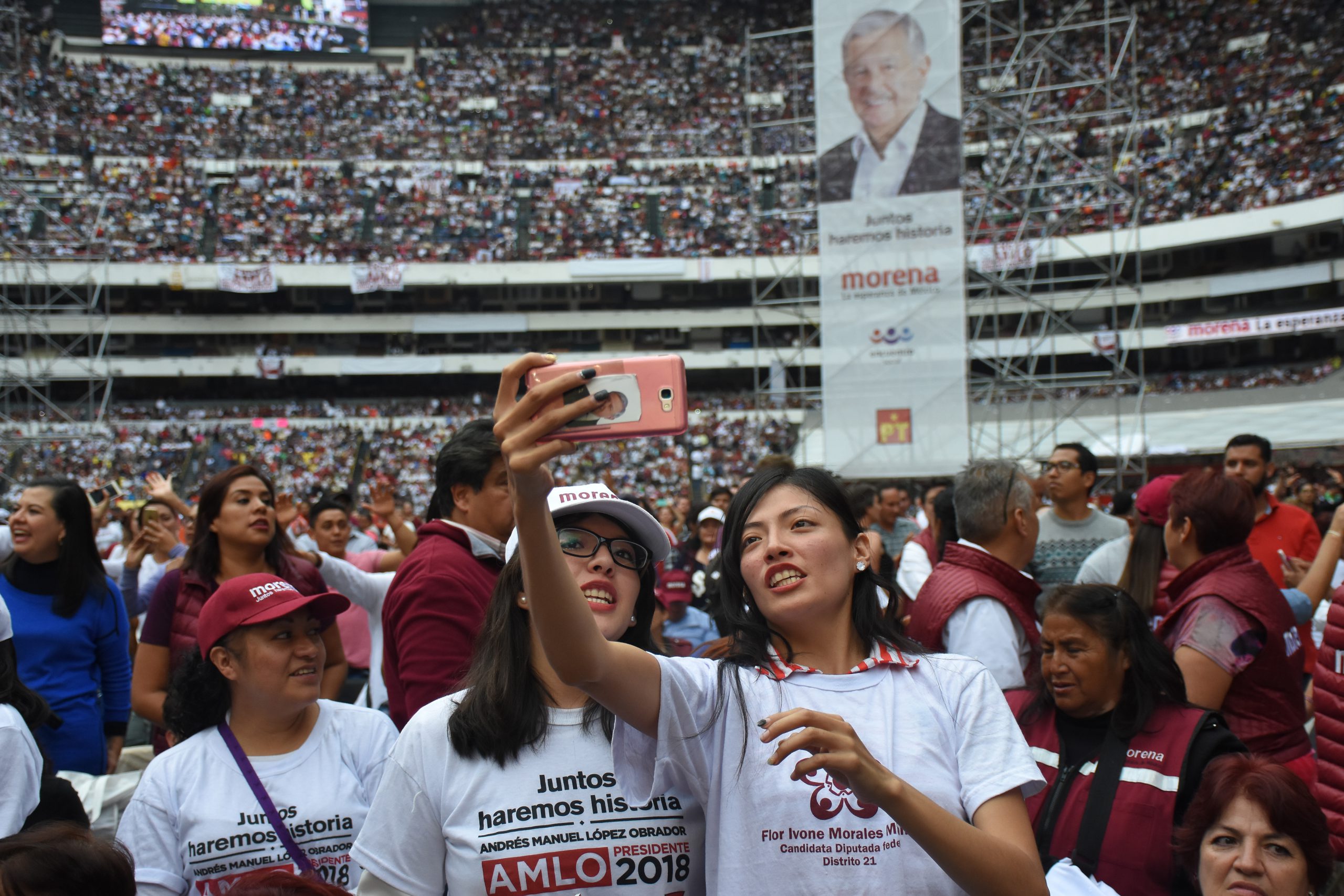In 2002, former Mexican President Vicente Fox was recorded telling Cuban leader Fidel Castro over the phone, “You’ll eat and then you’ll leave” (“comes y te vas”) days before the UN Financing for Development Conference was held in Monterrey. Fox was referring to an evening dinner for heads of state hosted by the Mexican government and the reason for his request for a quick departure was to avoid George W. Bush and the Cuban leader crossing paths.
These four words became symbolic of the National Action Party’s (Partido Acción Nacional—PAN) abandonment of the Institutional Revolutionary Party’s (Partido de la Revolución Institucional—PRI) long-standing diplomatic tradition, which positioned Mexico as one of the leaders in the non-aligned movement during the Cold War and promoted self-rule through what became known as the Estrada Doctrine.
A recently-retired member of Mexico’s foreign service, who asked not to be identified, stated in an interview for this article that “during the 12 years the PAN was in power, both Vicente Fox and Felipe Calderón led a bilateral diplomatic agenda which brought the country closer to the U.S. but farther away from its own independence and from the rest of the world. Both presidents directly intervened in the SRE [Mexico’s foreign affairs ministry]; they did not allow us to operate in what we considered to be Mexico’s best diplomatic interest.”
Barack Obama’s recent visit to Mexico is the first hint that with the PRI back in power, President Enrique Peña Nieto’s government will not shun its important relationship with the United States. But it does intend to diversify Mexico’s international agenda and change the rules by which the country will play in the global arena. Washington can expect more resistance on a number of bilateral issues than during the Fox and Calderón years—including the ability of U.S. police forces and drone planes to operate within Mexican borders.
Slowly but surely, from a diplomatic standpoint, Mexico is taking steps to reestablish itself as an outspoken, independent and active player, and is engaging emerging and established world powers beyond its neighbor to the North. In April, Peña Nieto’s participation in the conference of the Boao Forum For Asia—a China-based forum similar to the World Economic Forum—and Chinese President Xi Jinping’s visit to Mexico this week are a clear example of Mexico’s global pivot. President Xi’s visit, foreshadows a stronger bilateral commercial and diplomatic relationship.
Fox and Calderón did very little to maintain the strategic alliance that the PRI had built with China, and Calderón angered the Chinese government in 2011 when he received the Dalai Lama at the presidential residence.
But now, officials from the federal government and representatives from the private sector involved in President Xi’s visit are predicting the launch of a strategic, integral and functional alliance between China and Mexico. They are not exaggerating: as agreements reached during the visit show, this is much more than Xi making a courtesy call.
Amapola Grijalva, vice president of the Mexico-China Chamber of Commerce, told journalist Darío Celis in a June 3 radio interview that “agreements reached between the two delegations will help narrow the commercial balance gap between the countries, will open up a huge market for Mexican exporters, and will allow China to provide financing for important heavy infrastructure projects in the near future.” Grijalva estimates that “during Peña’s administration, up to $81 billion coming from China could go into financing new industrial naval port complexes, airports, telecom projects, and railway transportation systems.”
A joint declaration signed and issued by Peña Nieto and Xi on June 4 summarizes the amount of work already invested in the renewed Mexico-China relationship. The two leaders signed memorandums of understanding to formally establish cooperation in energy, mining, emerging industries, infrastructure, private sector collaboration, university alliances, trade, banking, and even the oil industry. In addition, it was announced that sanitary measures have been met to reopen the Chinese market to pork from Mexico, and an agreement was reached to allow all forms of tequila into China.
Additionally, to promote tourism in both countries, Peña Nieto and Xi expressed their mutual interest in expanding international flights connecting Mexico and China and in establishing a working relationship between their tourism ministries.
In the political arena, Peña Nieto took the opportunity to amend Calderón’s diplomatic gaffe by ratifying the “One China” principle. Peña Nieto stated that it is Mexico’s position that both Taiwan and the Tibet are part of Chinese territory and Tibetan affairs are an internal issue for China.
In the statement, both parties declared that “given the improvement of diverse mechanisms in the bilateral cooperation, the conditions are such that Mexico-China relations can be elevated to a new level of benefit to both nations.” They also established a calendar of working visits from high-level government officials to implement the agreements and scheduled future meetings during upcoming international forums including the UN, APEC and the G20.
As President Xi’s visit shows, the coming years are certain to bring Mexico and China diplomatically closer and to catalyze economic growth, trade and development in a mutually beneficial way—while breaking Mexico’s trade dependency on the U.S. market.









